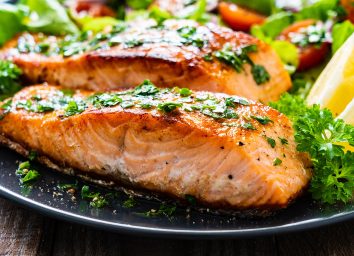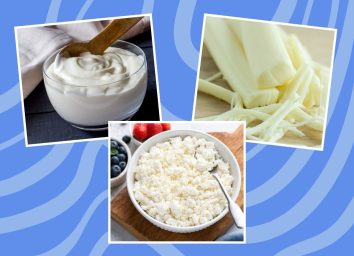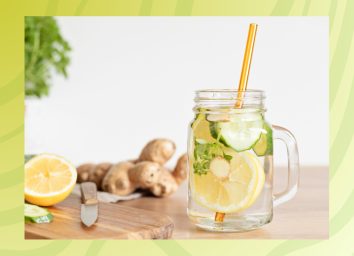The #1 Best Supplement to Slow Aging, Say Experts
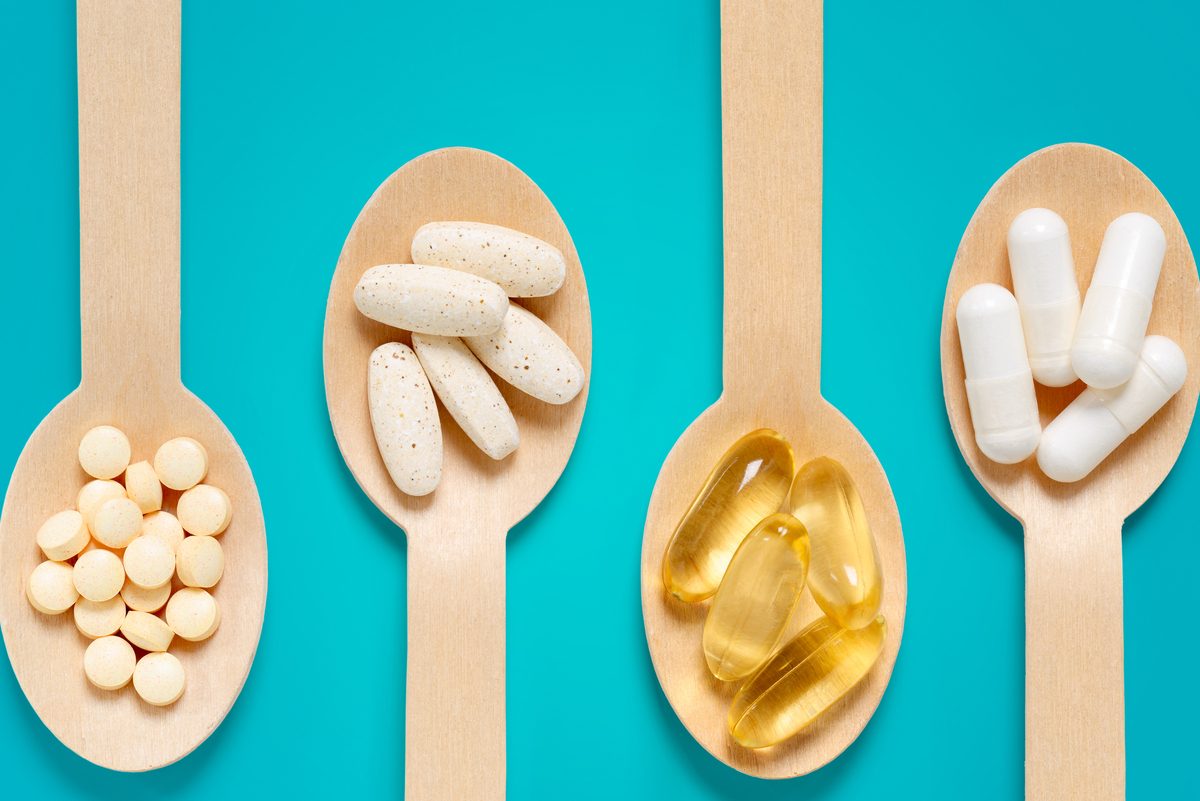
Choosing the best supplement to take to slow down aging depends on how you define aging. If looking in the mirror and seeing wrinkles makes you feel old, then your top supplement choices would be three antioxidants, vitamins E and C, and the trace mineral selenium, all of which have been shown to prevent sun damage to the skin that results in that leathery, saggy outward sign of getting on in years.
But aging is also defined by what you don't see in the mirror, the underlying biology that manifests in lower quality of life, cognitive decline, and increased susceptibility to illness. While those skin-saving antioxidants help the inside of you, too, experts say the number one best supplement to slow aging for you is likely the one nutrient (or more likely, several nutrients) in which you are deficient. (A blood test will tell you, although many doctors and dietitians agree that most Americans are deficient in these important nutrients: vitamin B12, omega-3 fats, and vitamin D.) Read on, and for more on how to eat healthy, don't miss 7 Healthiest Foods to Eat Right Now.
Vitamin B12 and Folate
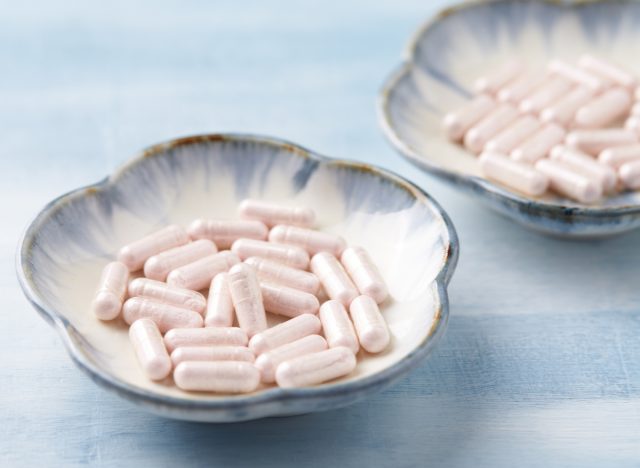
You need these two nutrients to produce neurotransmitters that allow communication between brain cells. Being deficient in them and having low levels of neurotransmitters results in depression, anxiety, fatigue, decreased concentration, cognitive decline, and poor sleep, says nutritional psychiatrist Sheldon Zablow, MD, author of Your Vitamins Are Obsolete.
Zablow says nearly all multivitamins and most individual B12 supplements contain artificial forms that are difficult for people to absorb. He recommends choosing the bioactive, natural forms of B12 methylcobalamin and adenosylcobalamin and for folic acid L-methylfolate. Deficiencies in these key B vitamins are so prevalent because Americans are eating less red meat (a good source of B12) and taking more prescribed medications that block the body's ability to use B12 and folate, drugs like the diabetes medication metformin, birth control pills, hormone replacement therapy, GERD medications, and nonsteroidal anti-inflammatory drugs.
The Omega 3s, EPA and DHA
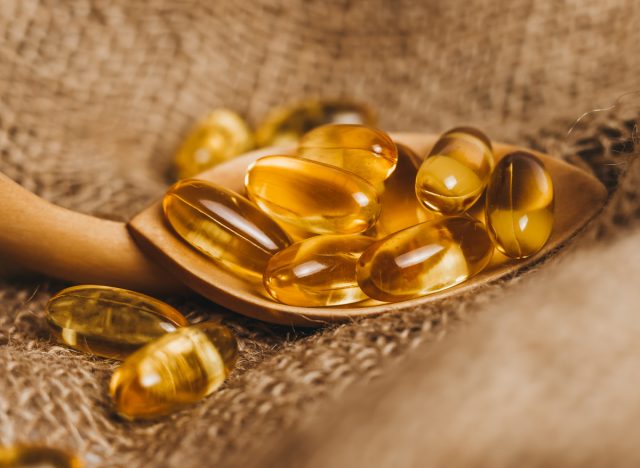
Omega-3 fatty acids are an integral building block for the brain and studies have shown that omega-3s may reduce the risk of cognitive decline in older people, says Isa Kujawski, MPH, RDN, a functional registered dietitian nutritionist and the founder of Mea Nutrition. "High levels of omega-6 fatty acids rampant in the standard American diet (mostly from the corn oil and vegetable oils used in our food) may also compromise omega-3 levels," she says.
Fish and seafood are the best food sources of DHA and EPA, but most people don't eat the suggested 8 ounces of fish weekly to help prevent heart disease and will likely benefit from omega-3 supplements with DHA and EPA.
Vitamin D
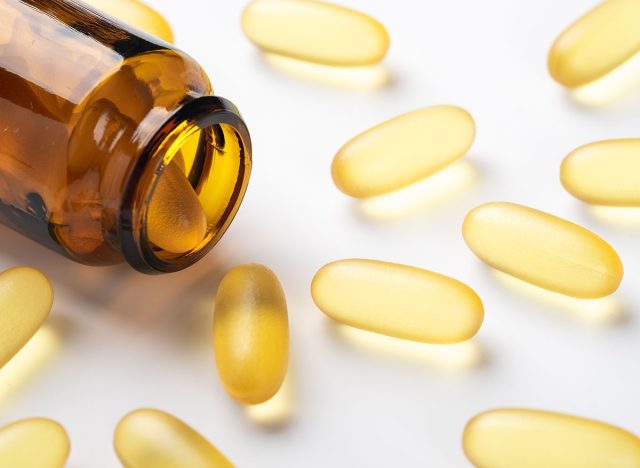
Three-quarters of teens and adults in the United States are deficient in vitamin D, according to JAMA Internal Medicine. Getting older puts us at even more risk for deficiency due to age-related metabolic changes, says Kujawski. Called the "sunshine vitamin" because it is produced in the skin by exposure to sunlight, "vitamin D plays a central role in immune health, muscle health, and heart health, which are all concerns among the elderly population," says Kujawski. It's also important for bone strength because it helps your body absorb and use calcium.
Choline
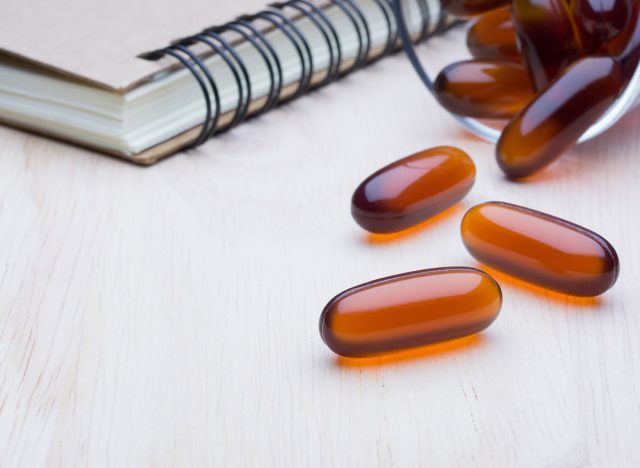
Taking a good multivitamin daily is solid insurance that you're getting essential nutrients every day, including those especially important as you age, suggests registered dietitian nutritionist Elizabeth Ward, MS, RDN, co-author of The Menopause Diet Plan, A Natural Guide to Managing Hormones, Health, and Happiness. One essential nutrient that you won't find in multis, however, is choline. "It's the raw material for producing a neurotransmitter that allows cells in the nervous system to communicate with each other, which is why choline is associated with better memory retention," Ward says. "Research suggests that postmenopausal women need more choline than they did in their premenopausal years."
Another way to slow the aging process is by eating the right meals. Check out these 26 Best Anti-Aging Foods and cook yourself younger!
Read these next:
